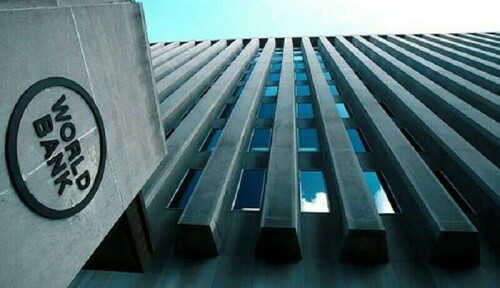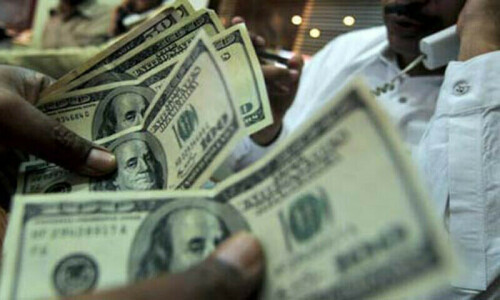 WHAT has emerged from the European/US financial turmoil are the outlines of two different approaches on the two sides of the Atlantic to the unfolding of the crisis.
WHAT has emerged from the European/US financial turmoil are the outlines of two different approaches on the two sides of the Atlantic to the unfolding of the crisis.
In New York, the Paulson plan is clearly part of a project to create three global financial giants-Citigroup, JP Morgan Chase and, Goldman Sachs. Having successfully wrestled a $700 billion bailout from the US taxpayers, now the big three will try to use their unprecedented muscle to ravage European banks in the years ahead.
So long as the world’s largest financial credit rating agencies-Moody’s and Standard & Poors-are untouched by the scandals and Congressional hearings, the re-organised US financial power could potentially regroup and advance their global agenda over the coming several years, walking over the ashes of a bankrupt American economy.
What should Europe do in the face of such a daunting challenge? In Germany and Britain, the two largest European economies, some serious thinking is being done.
In recent closed door talks, the German Central Bank (Bundesbank) came up with a rescue package for German giant Hypo Real Estate of a nominal 50 billion euros. However, banks must come up with 60 per cent of that figure, the state with 40 per cent.
The maximum possible loss, in a worst case scenario, to the German taxpayers would be limited to 5.7 billion euros. It’s still real money but not the blank cheque for $700 billion of US taxpayer money extracted from the US Congress under duress.
Policy shift: In the UK, after the costly bailout of Northern Rock earlier in the year, Prime Minister Gordon Brown has just announced a dramatic change in policy in the direction of Germany’s position. Britain’s banks will get an unprecedented 50 billion pound government lifeline and emergency loans from the Bank of England.
The government will buy preference shares from Royal Bank of Scotland Group Plc, Barclays Plc and at least six other banks, and provide about 250 billion pounds of loan guarantees to refinance debt, the Treasury said. The Bank of England will make at least 200 billion pounds available. The plan doesn’t specify how much each bank will get.
That means the UK government will at least partially nationalise its most important international banks, rather than buy their bad loans as under the unworkable Paulson plan.
Under such an approach, costs to UK taxpayers once the crisis abates and business returns to more normal conditions will be controlled, the government can sell the state shares back to a healthy bank at perhaps a nice profit to the Treasury. The Brown government has apparently realised that the blanket guarantees it gave to Northern Rock and Bradford & Bingley merely opened the floodgates of government costs.
Notwithstanding, the difference in approaches on the two sides of the Atlantic, most governments have justified their multi-billion support packages, arguing that they are the only means to restore confidence and re-establish the flow of capital between banks, without which the entire economy would come to a halt.
According to this line of thought, the present crisis is merely a crisis of liquidity and confidence, which will fade away as soon as the circulation of money is restored.
In reality, however, what we are experiencing is the bursting of a gigantic speculative bubble, which can rapidly lead to spiraling inflation under conditions in which huge sums of new money are being pumped into the finance system by governments and central banks.
During recent days and weeks, it has become increasingly evident that even the banks have no idea how much bad debt they are holding. The total sum of derivatives currently in circulation is estimated at $516 trillion. The market for credit and loan derivatives, however, has a volume of $56 trillion. These are merely paper values, bets on future developments, which lie slumbering on the banks’ balance sheets.
The G7 and European governments have gone to great lengths to promote confidence and calm. They present the rescue packages prepared as proof that they have everything under control. In fact, these packages are an expression of growing panic. What is being put forward in public as the “global answer to a global crisis” is in reality an expression of increasing conflict between individual nations.
Since the US government began to support its banks with hundreds of billions of dollars in taxpayers’ money, other countries fear competitive disadvantages if they do not adopt similar measures. In the general panic, a bank that has the support of a financially strong government has more chance of winning new investors than a bank lacking such support. Governments, therefore, are assuming a series of financial obligations, which they can never keep. In particular, smaller and economically weaker countries will stand to lose out.
In addition, the financial crisis is now rapidly spreading to the real economy. Die Zeit of Germany warns: “The next tsunami of the real economy is already on the roll.” This will contribute to the frictions and conflicts between the most powerful industrial nations.
In the Swiss journal Süddeutsche Zeitung, Stefan Kornelius already sees a crisis of the entire world order and writes: “The self-devaluation of the US unfolded in all of its dynamic in the vacuum of the pre-election period.... Europe, politically already eager to decouple from the US, is struggling with its own ties. The shining idea of the West has faded; new participants are standing in the wings. The financial crisis is turning into a crisis of the world order; this is shown by the panic-drive conferences in Washington and Paris.”
Such crises—the replacement of old power constellations by new ones—have never taken place peacefully in history. The current financial crisis is an expression and result of a profound crisis of the entire capitalist order.












































Dear visitor, the comments section is undergoing an overhaul and will return soon.